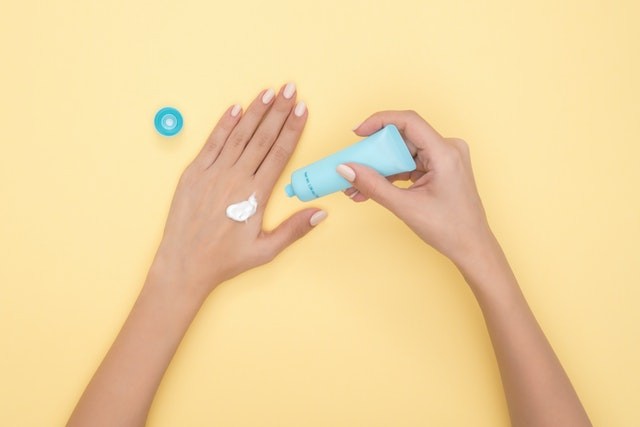
(Photo : Safe Shopping: Cancer-Causing Products Found in the Common Household )
Cancer is a horrible, debilitating disease that often leaves its victims with complicated medical issues that last for years, or results in death. Basically, cancer sucks.
Cancer is caused by a variety of factors. While treatments of the disease vary from conventional therapies to alternative and experimental, the study of cancer is an ongoing process and currently has no known cure safe for humans.
Often, we don't realize that many of the products that we use contain cancer-causing chemicals. In fact, it's estimated that over 22 percent of all cosmetic and hygiene products contain carcinogenic ingredients, with some product lines estimated at 97 percent.
With this in mind, it's a wise decision to become educated on the types of products that could possibly harm you if you expose yourself repeatedly to these ingredients.
Sunscreen
Everyone loves to spend time outdoors during great weather, all while basking under the rays of the life-giving sun.
But, not only is the sun a major source of radiation that can result in the formation of deadly skin cancers, the sunscreens that we use to protect ourselves from harmful ultraviolet radiation can be just as harmful themselves.
In fact, in 2021, a recall was ordered for 78 brands of sunscreen due to potentially dangerous compounds that can cause cancer in humans.
Many sunscreens have high levels of parabens and Benzine, a compound that is known to cause cancer in humans. If enjoying the sun safely is an activity that you wish to keep doing, consider purchasing natural sunscreen alternatives such as organic mineral sunscreen that is both paraben and benzene free.
Weed and Pest Killers
While you're out in the sun, hopefully wearing your natural paraben and benzene-free sunscreen, perhaps you'll want to work in the garden and get rid of those pesky weeds and insects that invade your space.
If this is something you're considering, it's worth noting that most (if not all) of these chemicals are potentially hazardous to humans, and some are known to cause cancer.
The popular weed killer Roundup is now the subject of major lawsuits due to numerous people using the product and developing cancer afterward.
Roundup contains the chemical Glyphosate. This chemical is now the subject of testing due to the formation of non-Hodgkin Lymphoma in patients who claimed to have used the weed killer. Glyphosate is known to cause cancer in laboratory animals, and in human populations.
If you're looking to keep your garden pest and weed-free, instead of using potentially harmful chemicals, seek out natural alternatives for keeping your garden healthy.
Such remedies include the use of essential oils, vinegar, salts, and several plants also add a protective quality to a garden such as planting Marigolds around the perimeter.
Talcum Powder
Most people don't correlate talcum powder, commonly referred to as baby powder, with cancer-causing ingredients. Many people are, however, aware that asbestos is a major contributor to lung cancer.
Now, most talc and baby powders are made free from asbestos by law. But, the fact is, some talcum powders in their natural form do contain high levels of asbestos. These powders are also used in cosmetics and with several other hygiene products that are found in the average household.
Asbestos has long been known to cause cancers in and around the lungs, and a condition known as asbestosis, which is a disease made recognizable by long-term inflammation of the lungs due to exposure to asbestos fiber.
Not only can asbestosis lead to cancer, but it can also be a direct cause of mesothelioma and pulmonary heart disease.
In order to maintain a healthy lifestyle, and still enjoy your life to the fullest, it's become part of everyone's due diligence to be very cautious when purchasing any products.
Read warning labels and ingredients prior to purchasing any products that you might think could be harmful to you or anyone in your family. The saying is true, an ounce of prevention is worth a pound of cure. And when it comes to cancer, you're better off having practiced caution when purchasing any of today's products.
* This is a contributed article and this content does not necessarily represent the views of hngn.com








